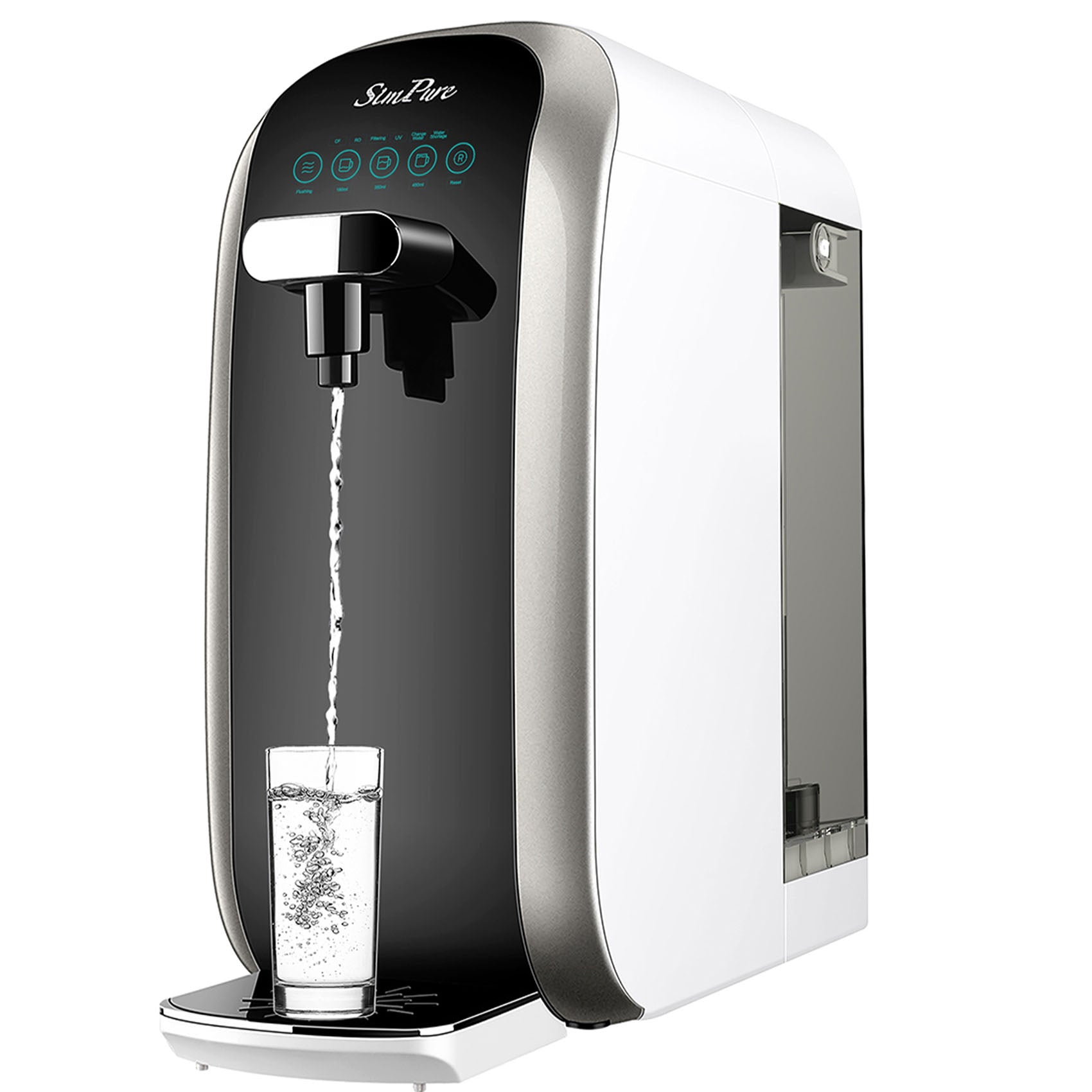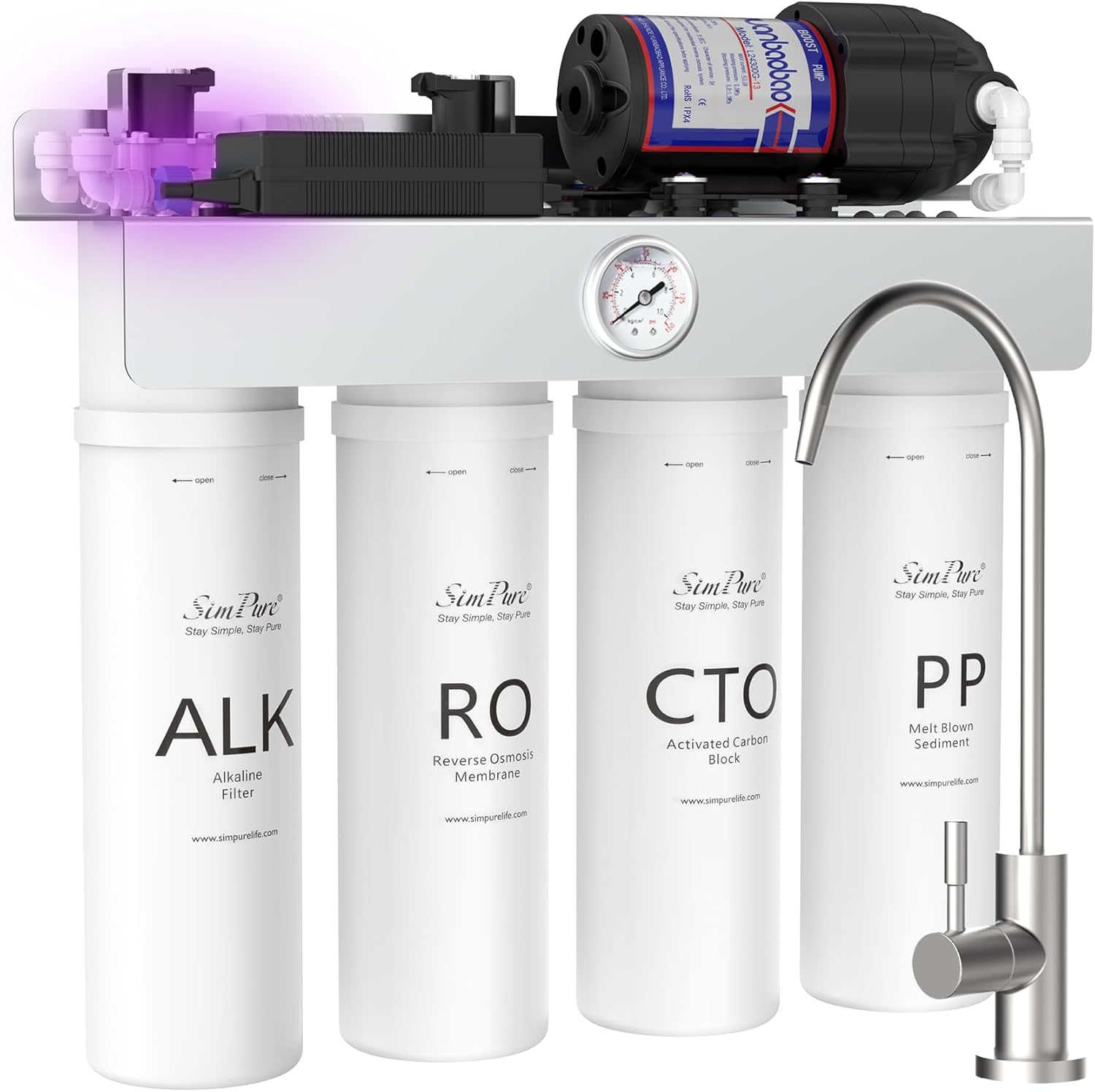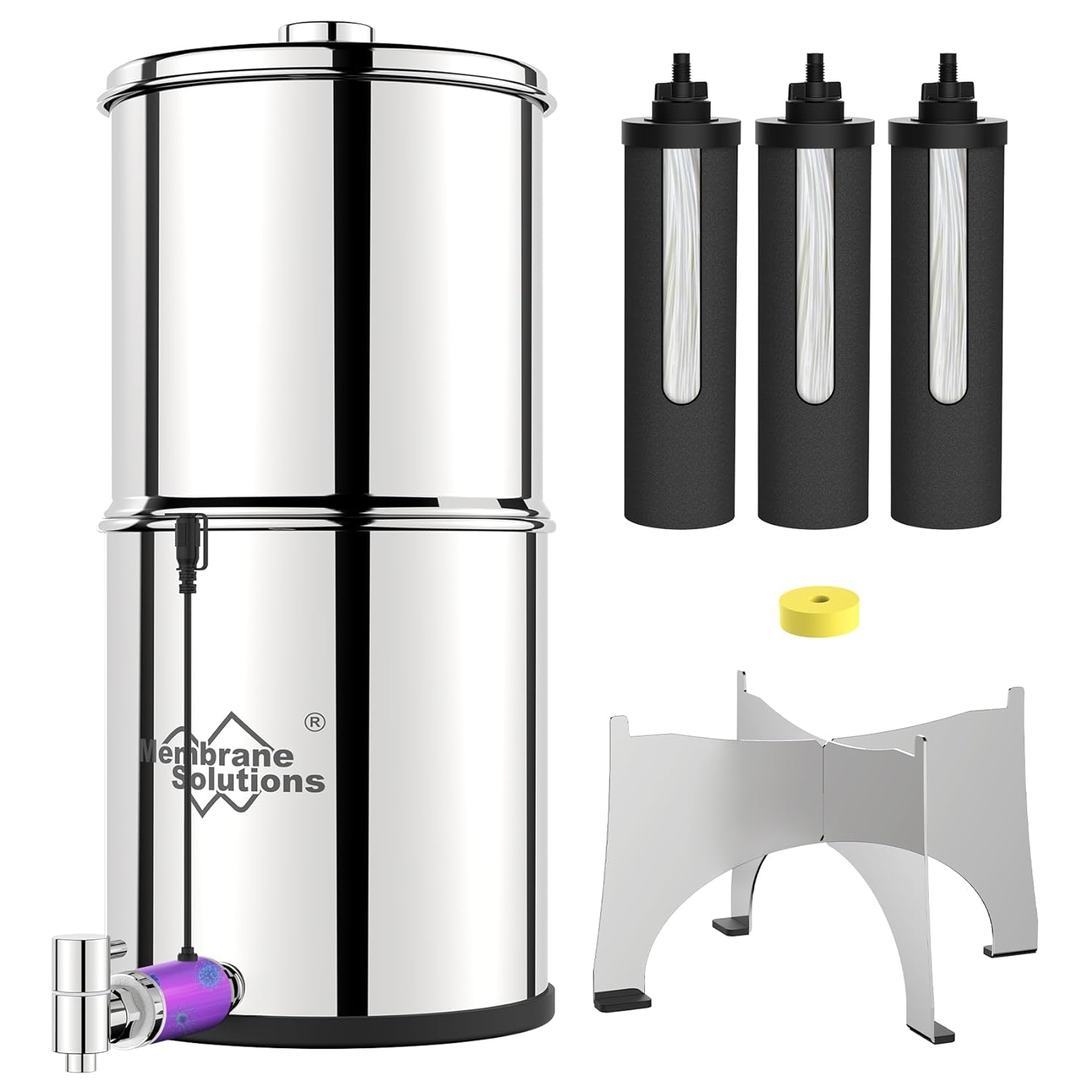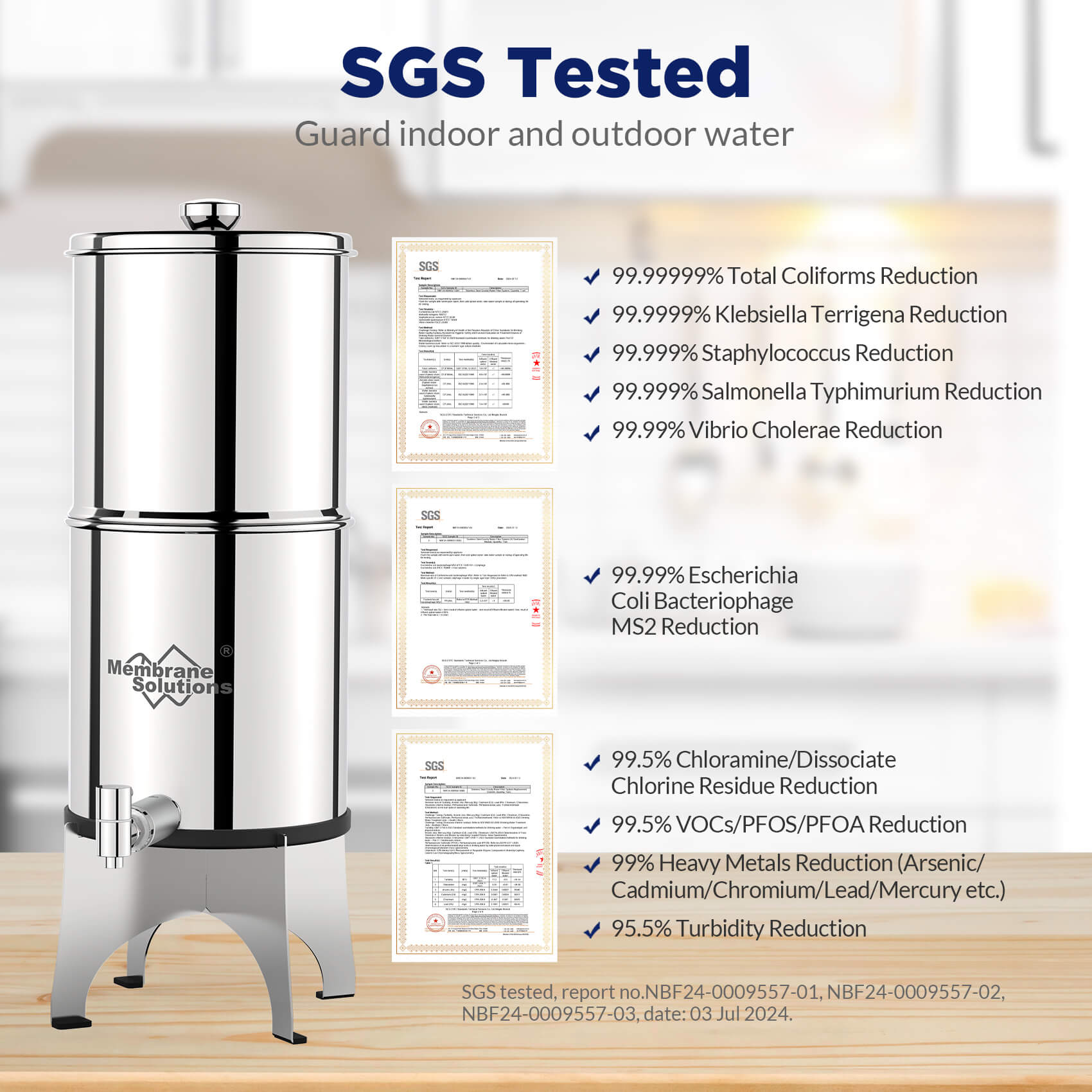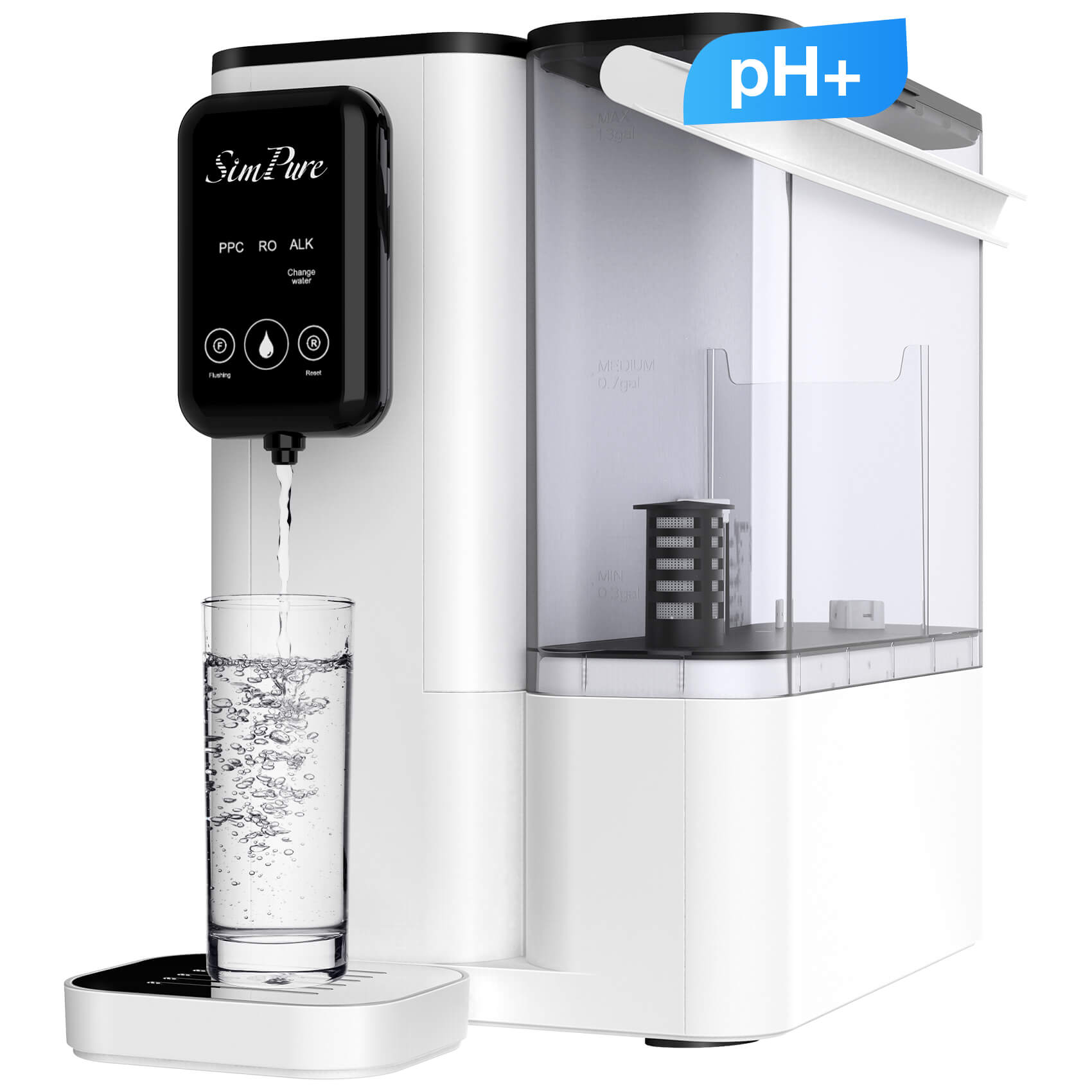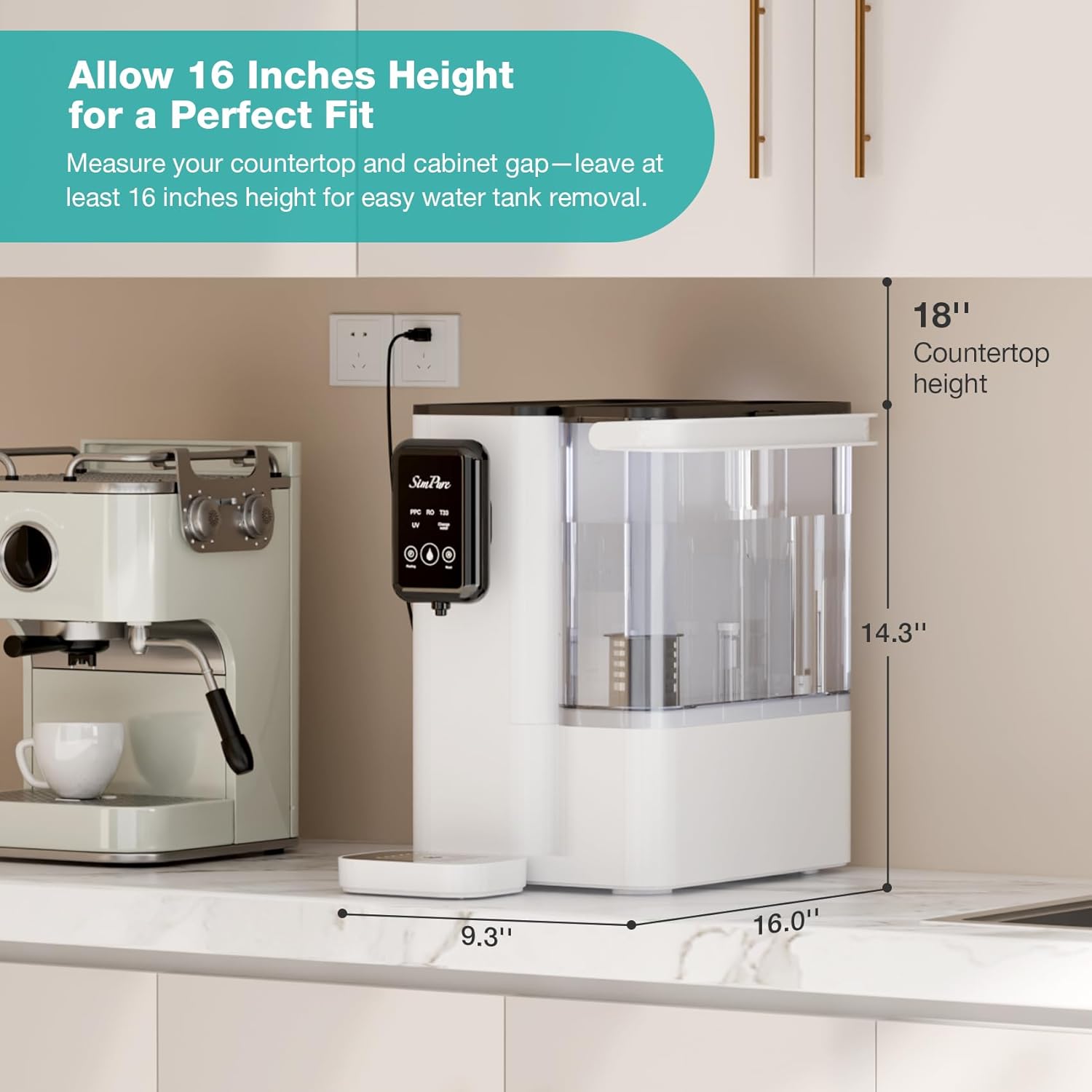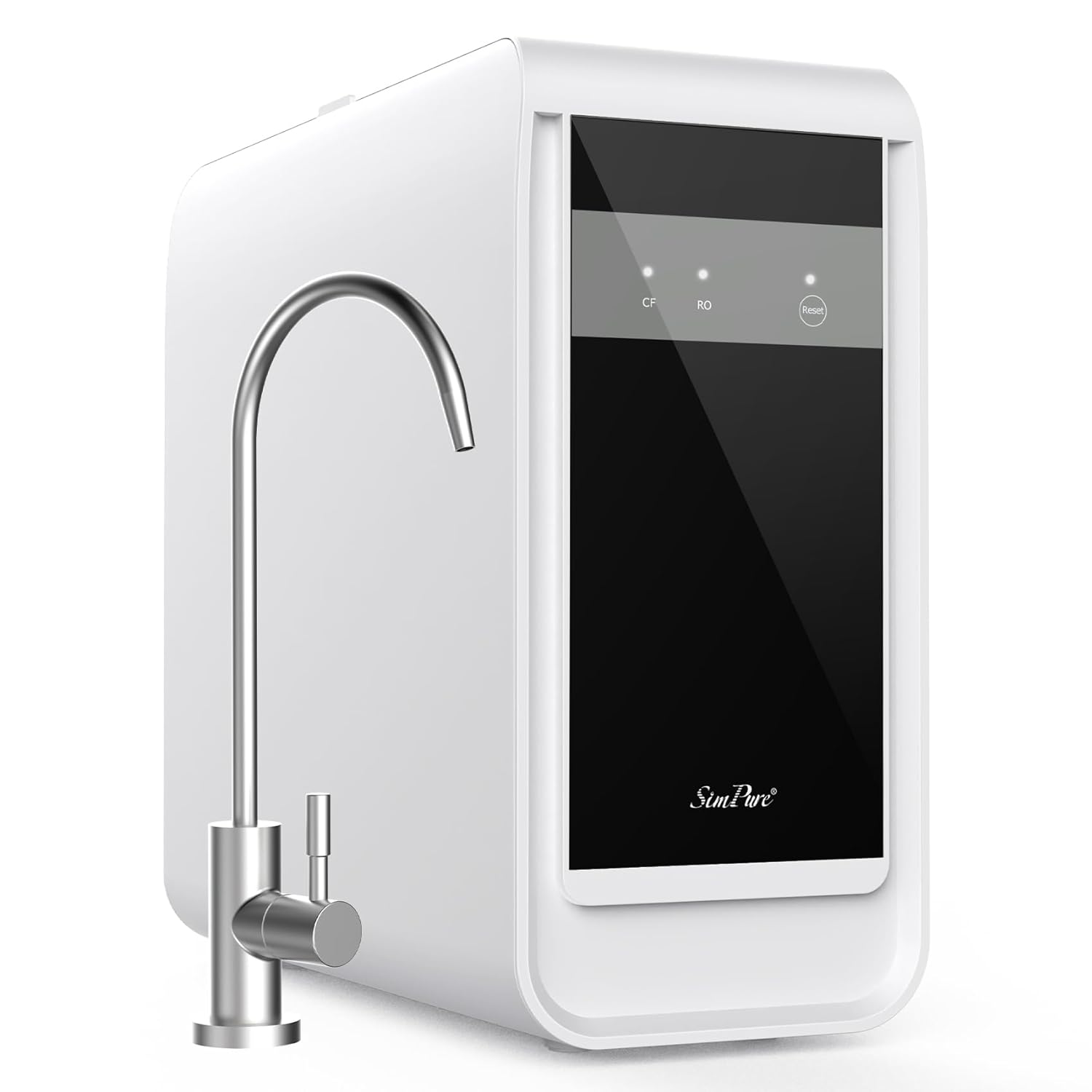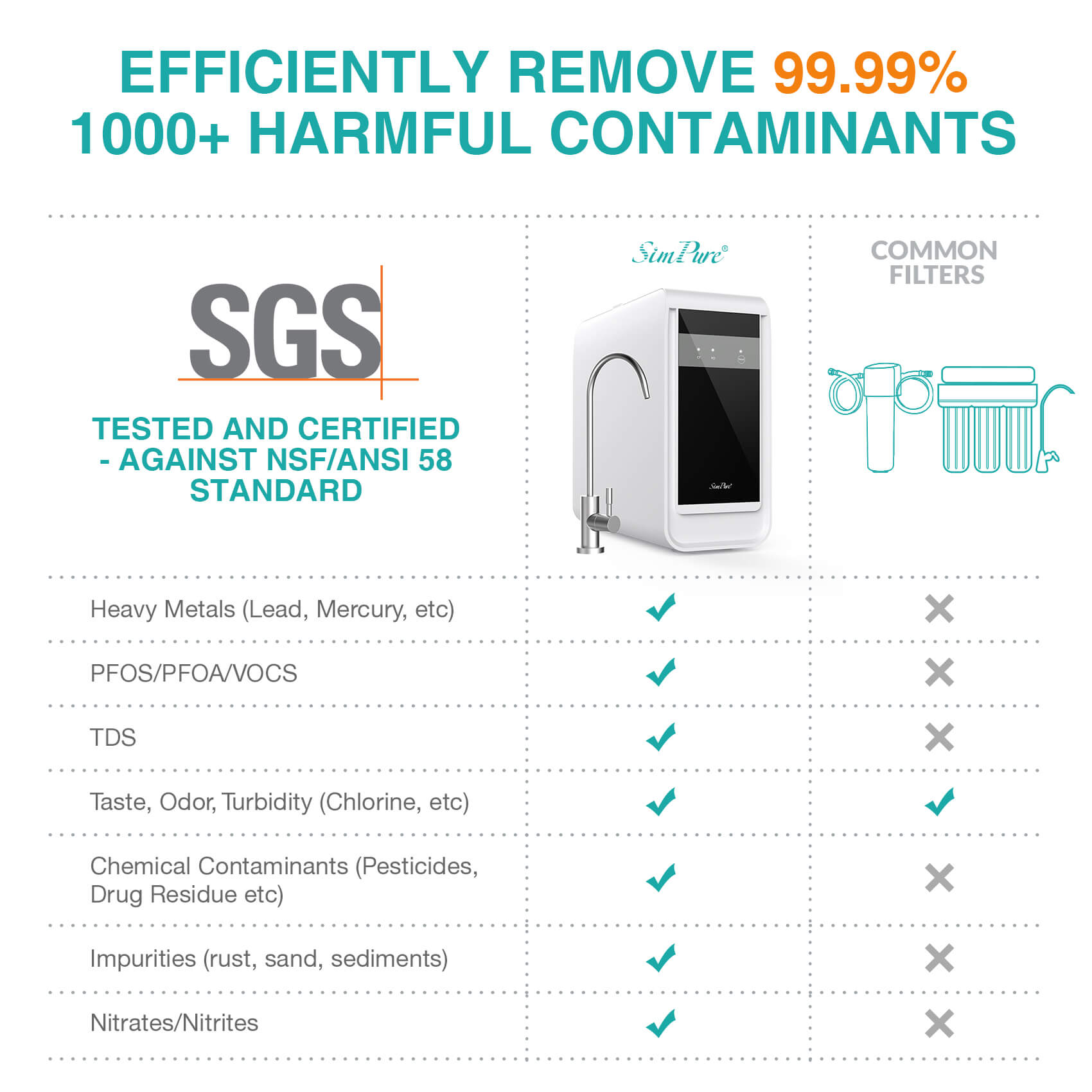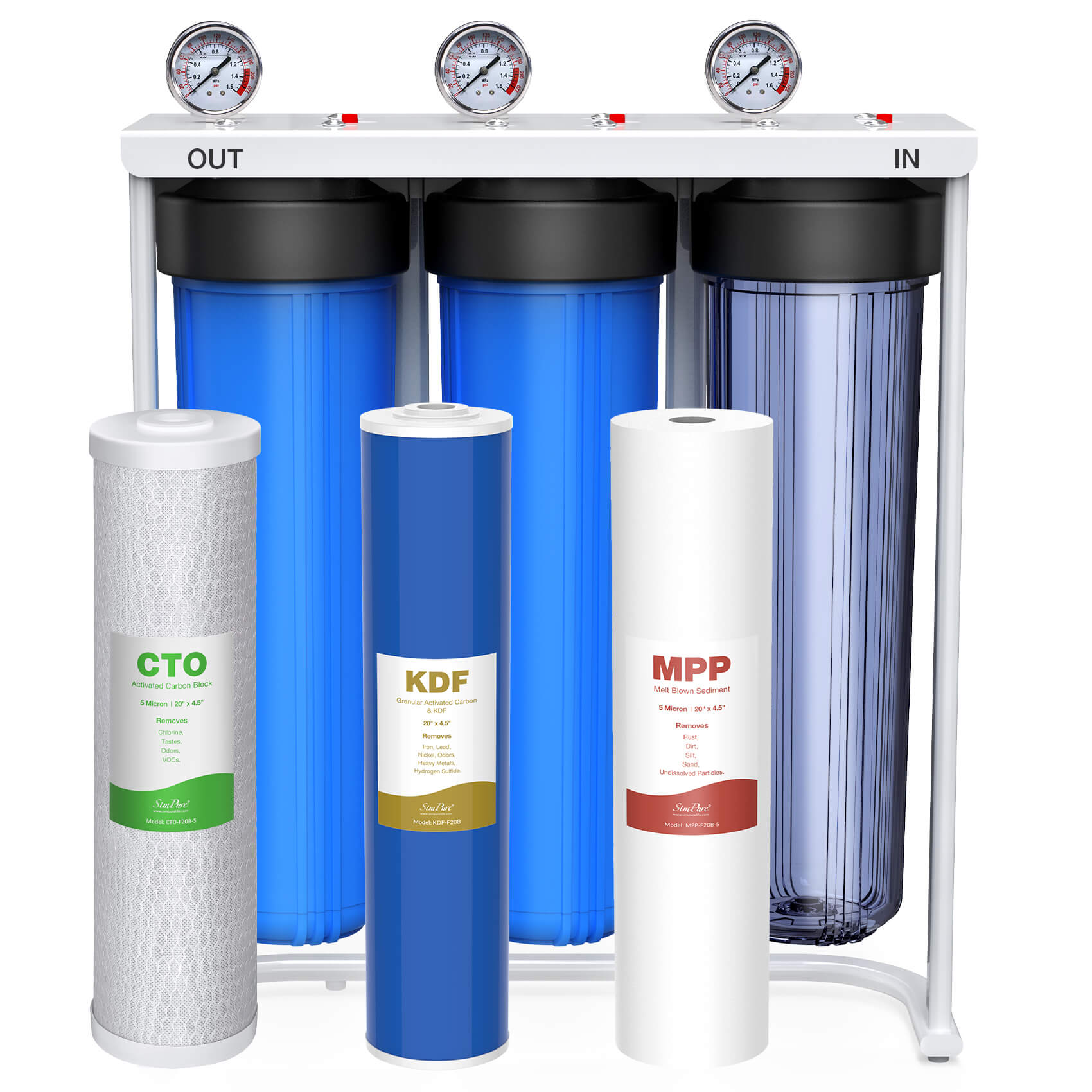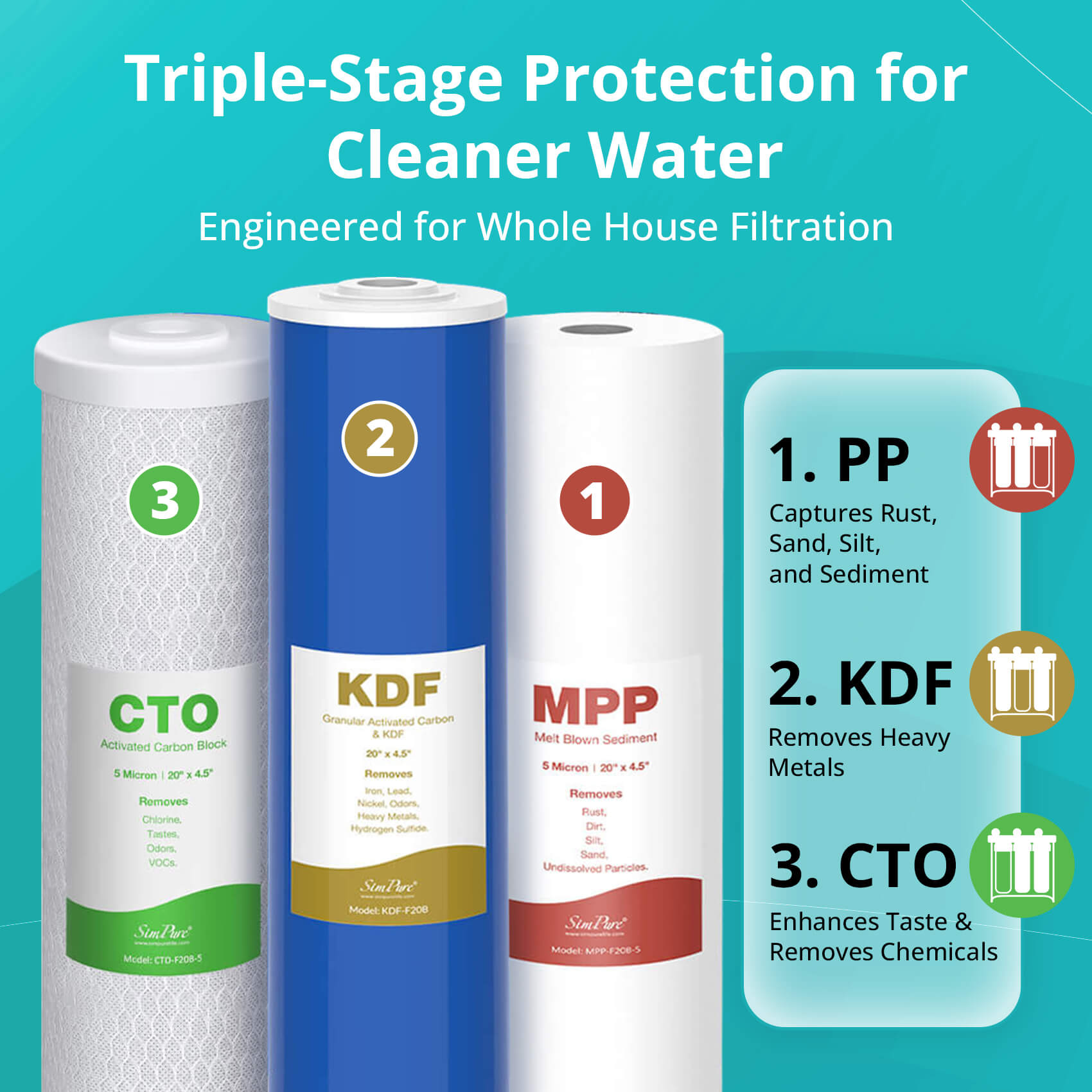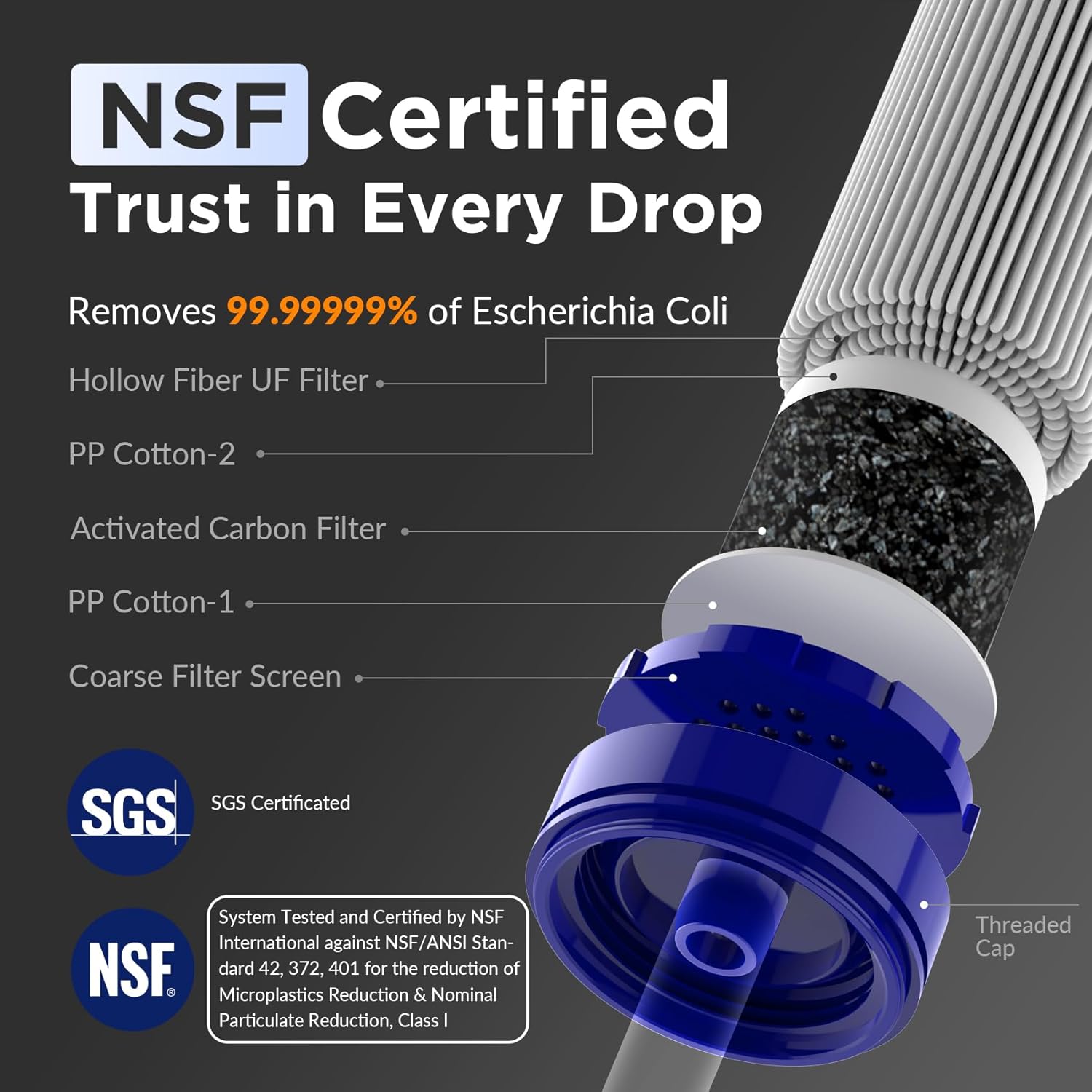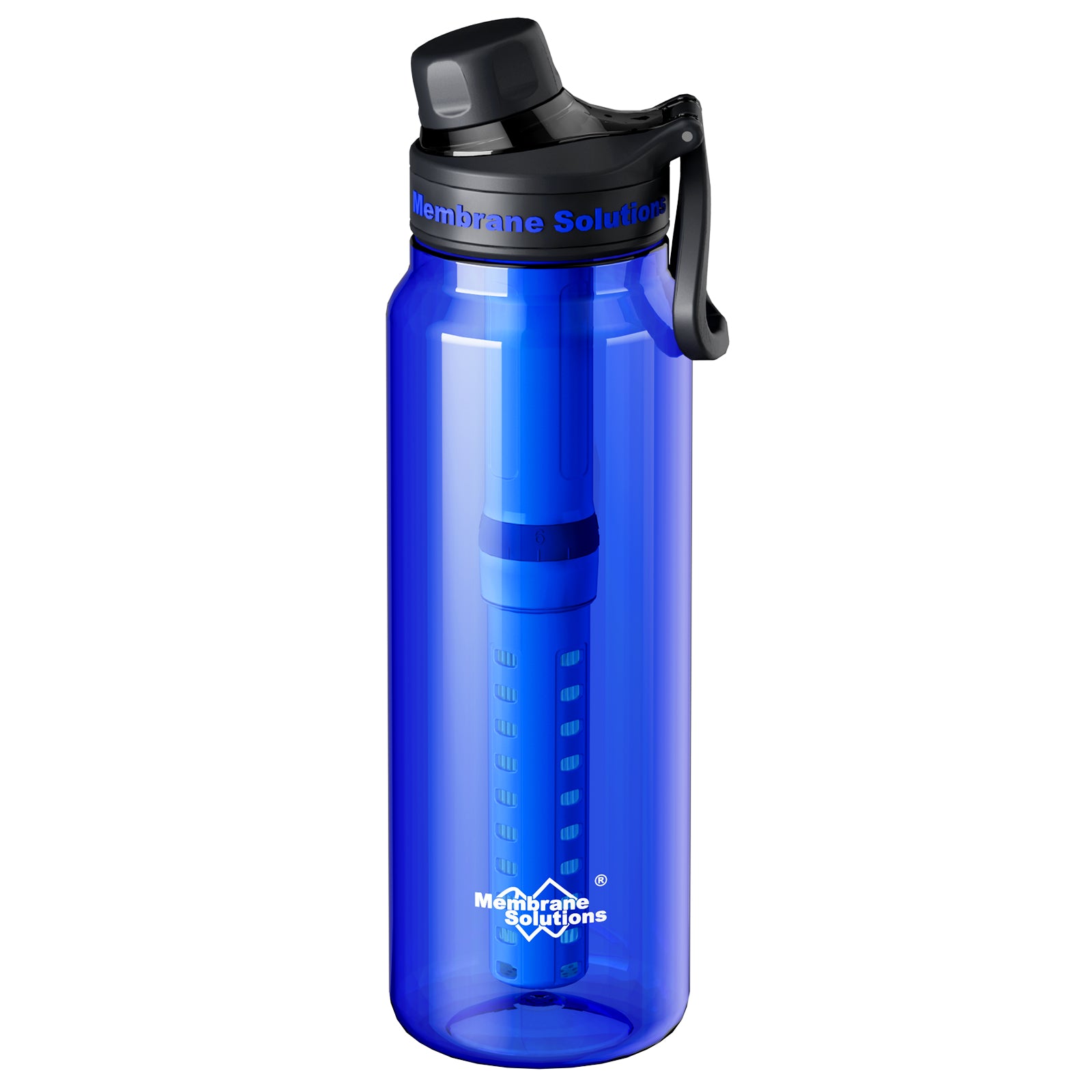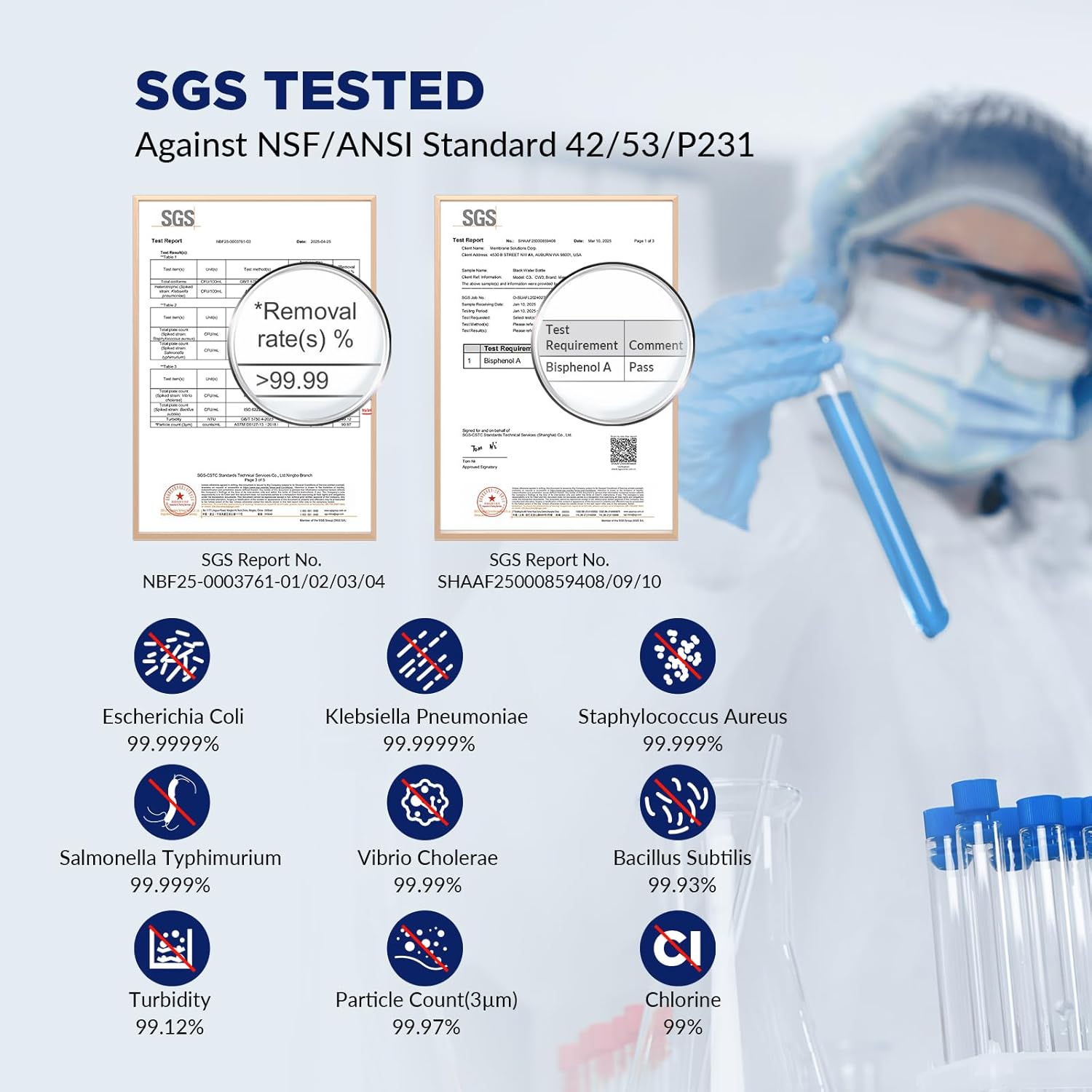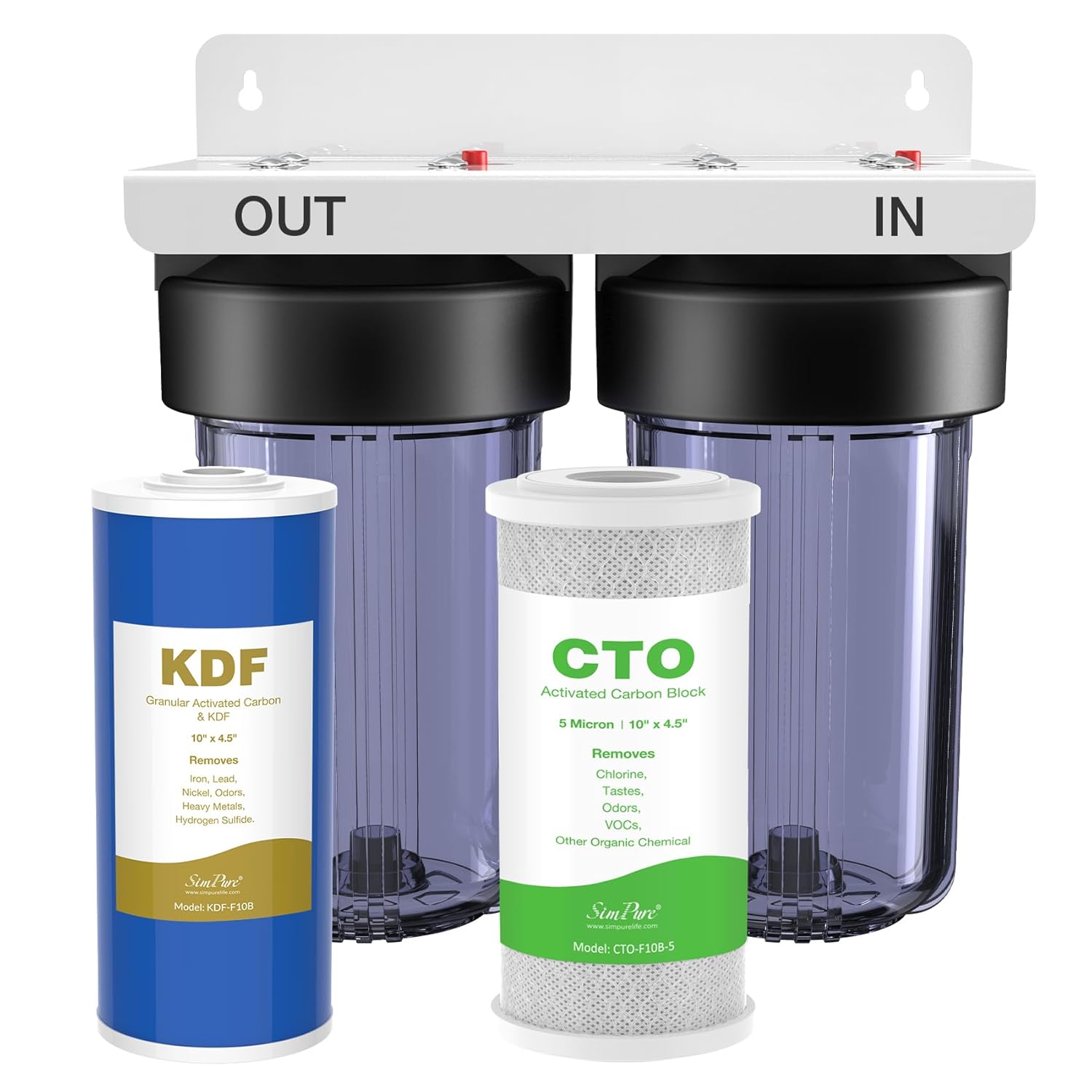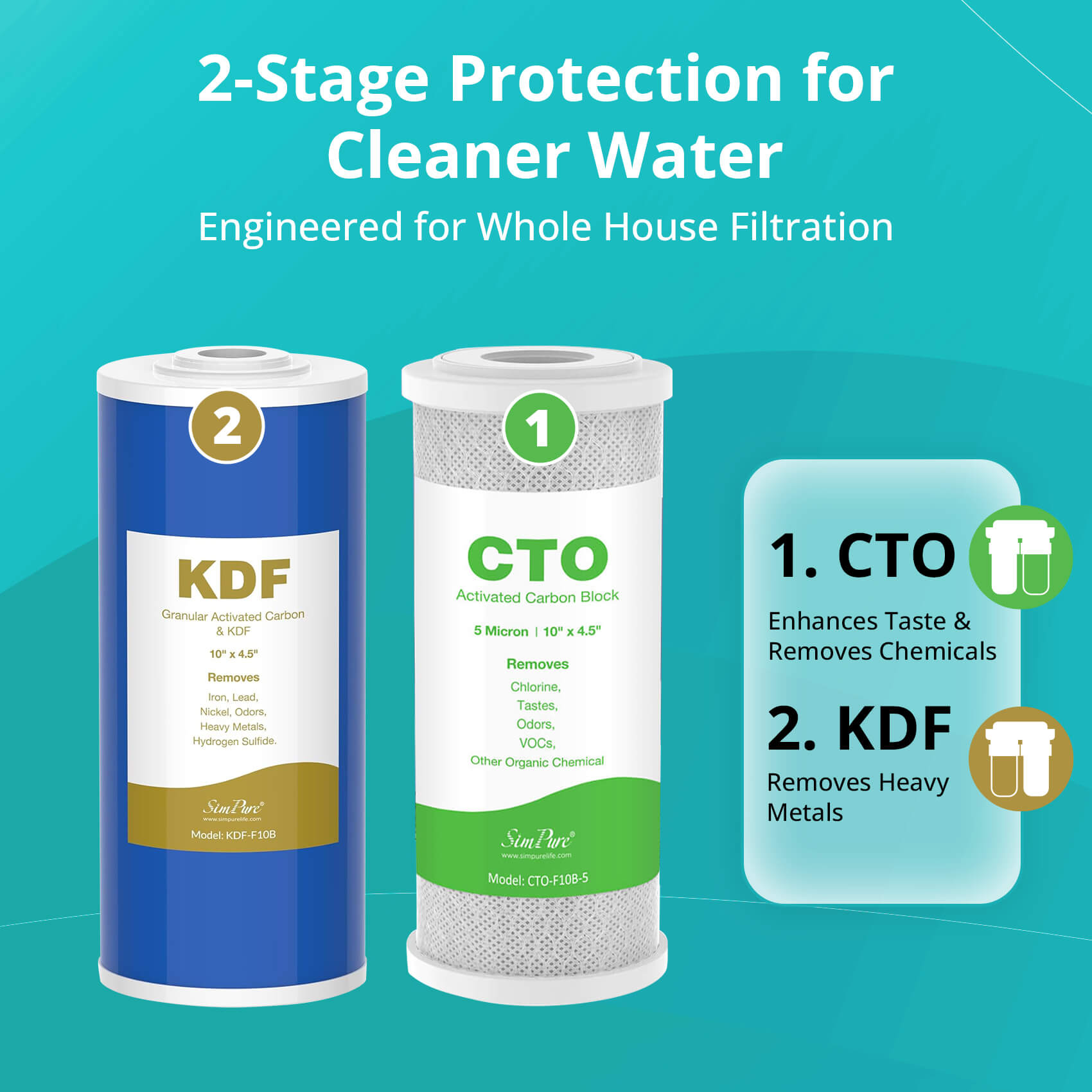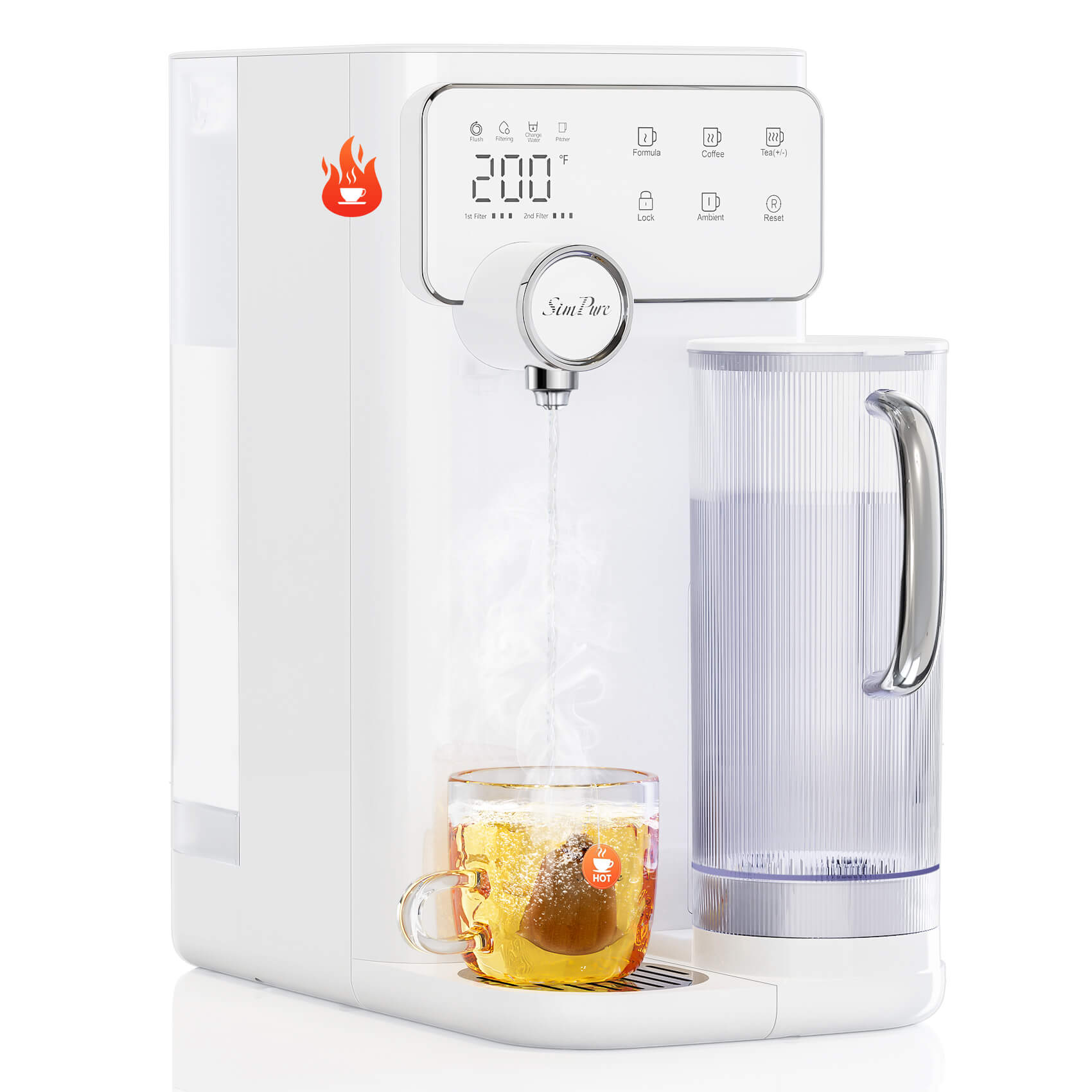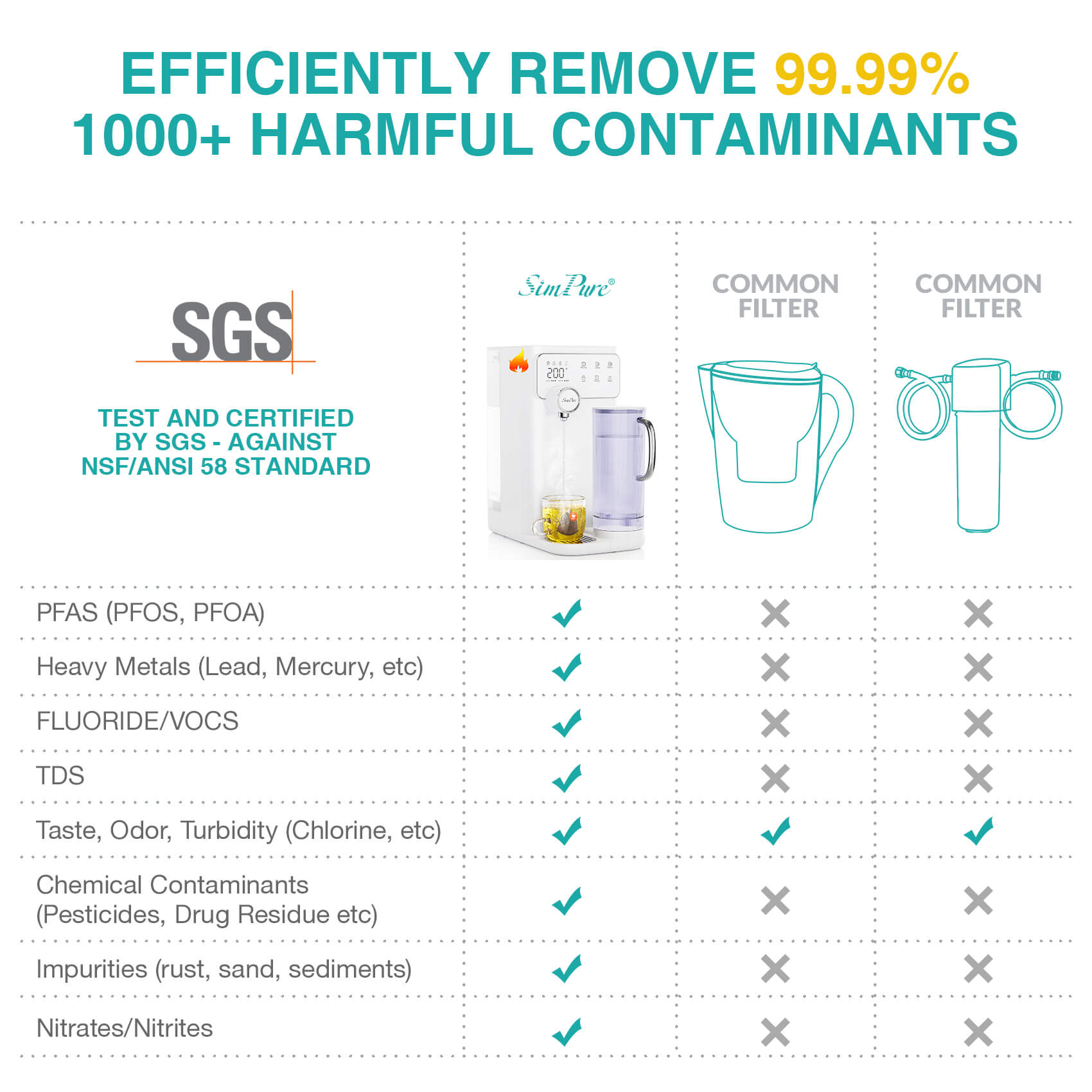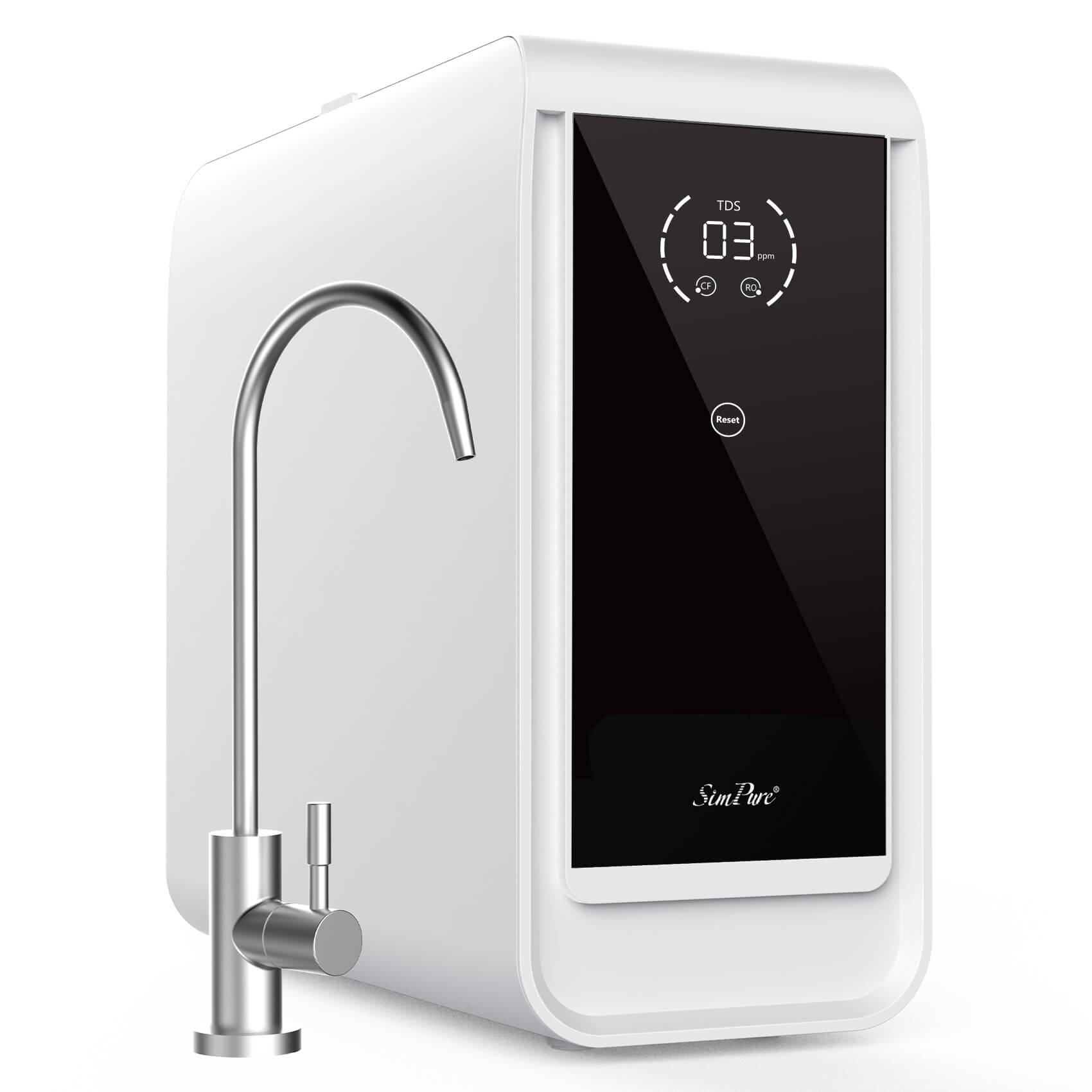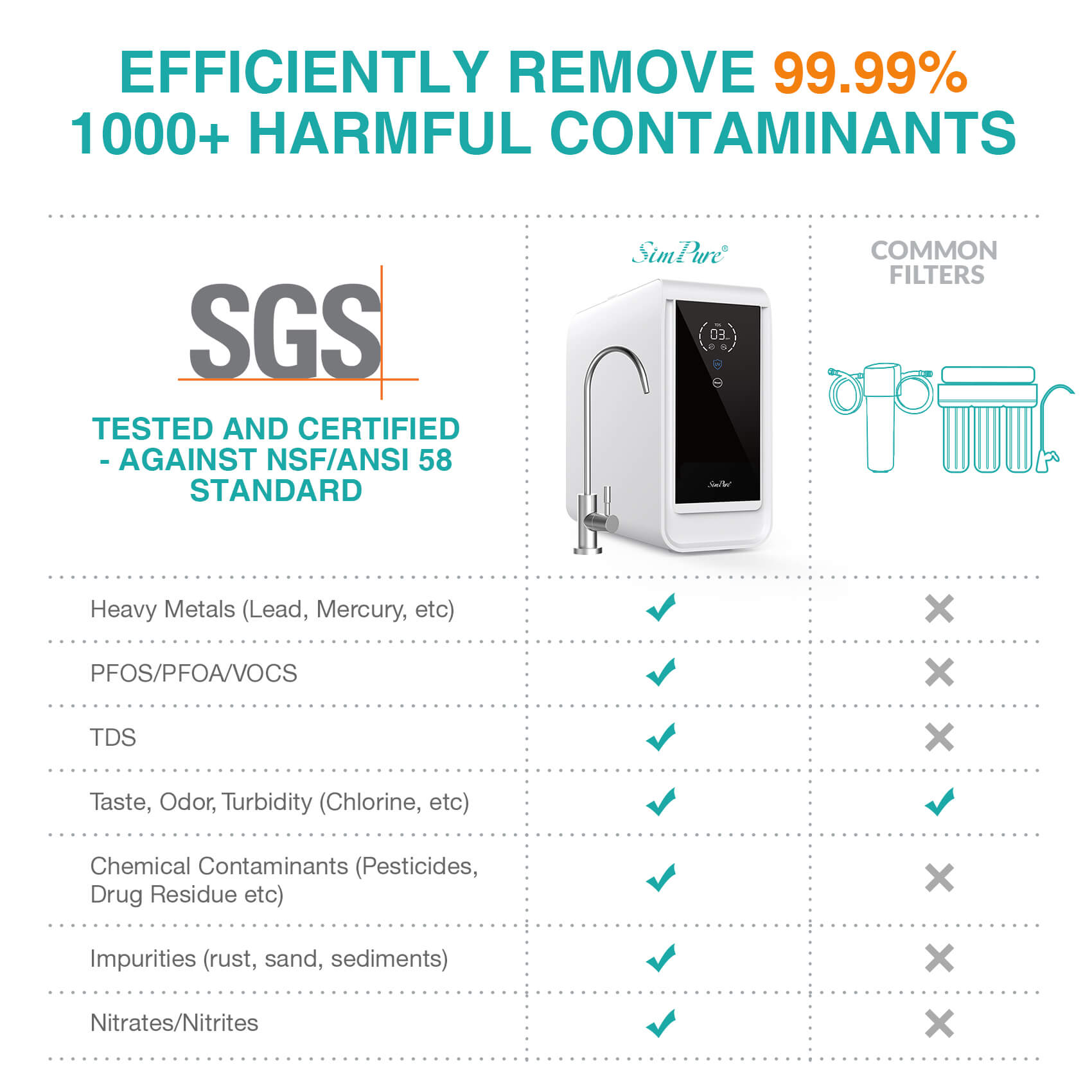What do refrigerator filters remove from the water? Refrigerator filters offer a convenient solution by removing various impurities directly in your fridge. These filters tackle common concerns like chlorine taste, sediment, and heavy metals. Here are five essential things you should know about what refrigerator filters can remove from your water.
1. What Do Refrigerator Water Filters Remove?

Refrigerator water filters effectively remove a wide range of contaminants just like our whole house water filters. These filters often use multiple layers of filtration to ensure the water you drink is clean and safe. Here’s a breakdown of the common components of refrigerator water filters and the efficiency of each layer:
1. Activated Carbon Layer
The activated carbon layer captures and removes:
-
Chlorine: It eliminates chlorine, improving taste and odor.
-
Volatile Organic Compounds (VOCs): It traps organic chemicals, which can affect water quality.
2. Sediment Filter
The sediment filter removes:
-
Dirt and Rust: It blocks larger particles like dirt, rust, and sand, protecting the finer filters.
-
Sediments: It catches and retains various sediments that can cloud water.
3. Ion Exchange Resin
The ion exchange resin targets:
-
Heavy Metals: It removes heavy metals like lead and mercury, ensuring safer water.
-
Hardness Ions: It reduces calcium and magnesium, preventing scale buildup.
4. Microbial Filter
The microbial filter blocks:
-
Bacteria and Cysts: It eliminates harmful microorganisms, ensuring the water is microbiologically safe.
5. Final Polishing Filter
The final polishing filter ensures:
-
Pure Taste: It provides a final clean, ensuring no particles remain and enhancing the water's taste.
2. How Do Refrigerator Water Filters Work?

Refrigerator water filters use several filtration mechanisms to purify water. The most common mechanism is activated carbon. Activated carbon filters are made from carbon granules or blocks with tiny pores that trap contaminants. They effectively remove chlorine, volatile organic compounds (VOCs), and other chemicals, improving taste and odor.
In addition to activated carbon, some filters use sediment filters to capture larger particles like dirt, rust, and sand. Ion exchange resins are often employed to remove heavy metals such as lead and mercury, as well as to reduce water hardness by exchanging calcium and magnesium ions with sodium or potassium ions. Microbial filters are used to block bacteria and cysts, ensuring the water is microbiologically safe.
- The Process
The filtration process begins when tap water enters the refrigerator’s water line. The water first passes through a sediment filter, which removes large particles. It then moves to the activated carbon filter, where chlorine, VOCs, and other chemicals are trapped. If present, the ion exchange resin layer removes heavy metals and reduces hardness. Finally, the water passes through a microbial filter, eliminating any remaining bacteria and cysts.
So is fridge water filtered? Yes, refrigerator water is filtered, but the level of filtration depends on the type of filter your refrigerator uses. Most modern refrigerators equipped with water dispensers or ice makers include built-in water filters. The filtered water is then stored in the refrigerator’s water reservoir or directly dispensed through the water dispenser.
3. What Should You Know About Refrigerator Filters?
The entire refrigeration system of the refrigerator needs to work in a dry vacuum environment, but there will inevitably be traces of moisture and tiny impurities. If these impurities and moisture are not treated, it will seriously affect the normal operation of the refrigeration system.
During the assembly process, due to the influence of the assembly environment, irregular assembly operations or incomplete cleaning of the parts themselves, air or some dust will enter the refrigeration pipeline. According to the principle of a refrigeration cycle, the superheated steam with high temperature and high pressure is discharged from the exhaust port of the compressor, and after being cooled by the condenser, it enters the capillary tube for throttling and decompression. Due to the small inner diameter of the capillary, if there is moisture and impurities in the system, it is easy to cause blockage and affect the normal function of the refrigerator.
Therefore, in daily life, the refrigerator water filter is very important for the protection of the refrigerator refrigeration system. To ensure that the refrigerator can be dry and clean, and the refrigeration system can operate normally, it is essential to install a refrigerator water filter.
4. How to Deal With Clogged Refrigerator Filter?
1. If the air quality inside the air compressor is too poor, it is recommended to direct the air compressor intake pipe to an area with better air quality or add a high-efficiency air filter to the air intake.
2. Pay attention to cleaning and maintaining the air filter during use. In order to prolong the service life of the air filter, it is recommended to clean the air filter in time. If the air filter is damaged, it should be replaced immediately.
3. If it is because of the failure of the oil filter, the workload of the degreasing steam is greatly increased, causing the problem of clogging. It is recommended to drain the dirty oil in the oil filter in time, replace the filter element in time, and clean the inside of the filter regularly.
5. How Often Should You Replace Your Filter?
You should replace your refrigerator water filter every 6 to 12 months, depending on usage and water quality. Regular replacement ensures optimal performance, as filters can become clogged with impurities over time, reducing their effectiveness. If you notice changes in water taste or flow rate, it's a sign that the filter needs replacing. Always follow the manufacturer's recommendations for your specific filter model to maintain clean and safe drinking water.
For reliable and NSF-certified refrigerator water filters that fit LG, GE, Maytag, and Samsung models, consider SimPure Refrigerator Water Filters. They offer high-quality filters at affordable prices. For more details and to find the right model for your refrigerator, visit SimPure's refrigerator water filters.
In conclusion, refrigerator water filters play a crucial role in maintaining the efficiency and longevity of your refrigeration system by removing contaminants and moisture. To ensure your filter operates effectively and keeps your water clean, replace it every 6 to 12 months as recommended. For high-quality, NSF-certified refrigerator water filters compatible with LG, GE, Maytag, and Samsung models, consider SimPure. SimPure offers reliable and affordable filters that provide exceptional performance.
Explore SimPure Best Refrigerator Water Filters Replacement!!

